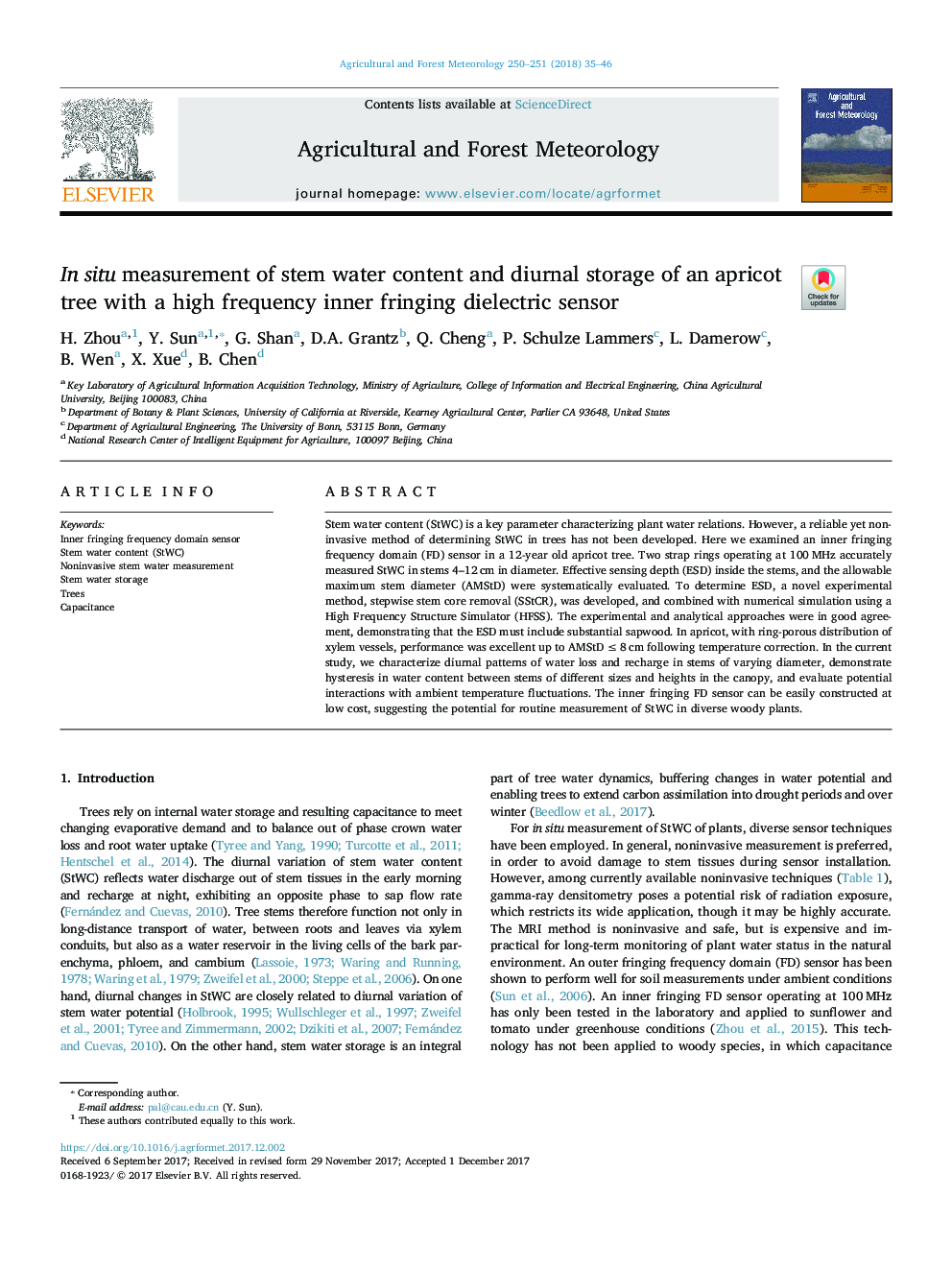| Article ID | Journal | Published Year | Pages | File Type |
|---|---|---|---|---|
| 6536789 | Agricultural and Forest Meteorology | 2018 | 12 Pages |
Abstract
Stem water content (StWC) is a key parameter characterizing plant water relations. However, a reliable yet non-invasive method of determining StWC in trees has not been developed. Here we examined an inner fringing frequency domain (FD) sensor in a 12-year old apricot tree. Two strap rings operating at 100â¯MHz accurately measured StWC in stems 4-12â¯cm in diameter. Effective sensing depth (ESD) inside the stems, and the allowable maximum stem diameter (AMStD) were systematically evaluated. To determine ESD, a novel experimental method, stepwise stem core removal (SStCR), was developed, and combined with numerical simulation using a High Frequency Structure Simulator (HFSS). The experimental and analytical approaches were in good agreement, demonstrating that the ESD must include substantial sapwood. In apricot, with ring-porous distribution of xylem vessels, performance was excellent up to AMStDâ¯â¤â¯8â¯cm following temperature correction. In the current study, we characterize diurnal patterns of water loss and recharge in stems of varying diameter, demonstrate hysteresis in water content between stems of different sizes and heights in the canopy, and evaluate potential interactions with ambient temperature fluctuations. The inner fringing FD sensor can be easily constructed at low cost, suggesting the potential for routine measurement of StWC in diverse woody plants.
Keywords
Related Topics
Physical Sciences and Engineering
Earth and Planetary Sciences
Atmospheric Science
Authors
H. Zhou, Y. Sun, G. Shan, D.A. Grantz, Q. Cheng, P. Schulze Lammers, L. Damerow, B. Wen, X. Xue, B. Chen,
